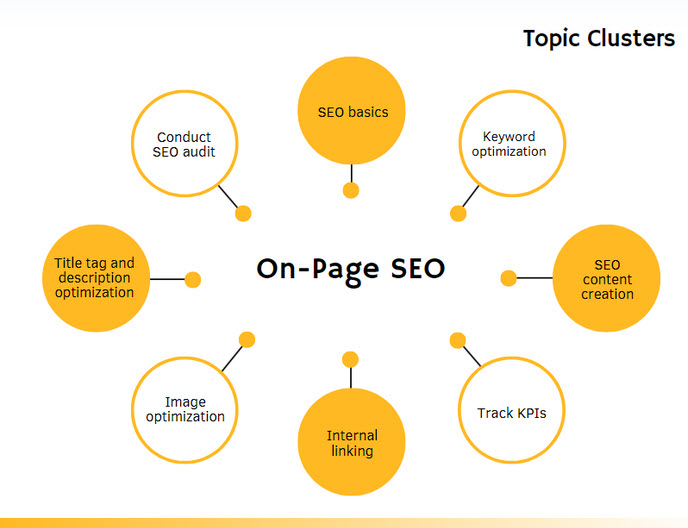How to Create a Content Cluster for an Affiliate Website
Content clustering is an effective way to create content for an affiliate website. It involves grouping related topics and content ideas into clusters, which makes it easier to organize, find, and optimize content.
Content clustering can help ensure that your affiliate website provides comprehensive coverage of each topic while still maintaining a consistent structure and flow.
This article will provide a step-by-step guide to creating a successful content cluster for an affiliate website.
We’ll cover the basics of what a content cluster is as well as how to determine the best topics, identify keywords, generate ideas, and write effective copy for each page in the cluster.
What is a Content Cluster?
Content Clustering is the practice of organizing related content into a group or cluster, so that each piece provides a comprehensive overview of the entire topic. Clustered content can help create an organized structure for your website, as well as make it easier to find relevant information.
You should start by selecting closely related topics with overlapping keywords when creating a content cluster. Once you’ve identified these topics, you can begin to generate ideas for pages within the cluster.
These pages should include an introduction page with keyword-rich copy that outlines the overall topic and multiple “deep dive” pages with more detailed information about specific subtopics within the main topic.

content cluster
Determine the Best Topics for Your Content Cluster
When creating a content cluster for an affiliate website, it’s important to focus on topics that have the potential to bring in high-quality traffic and generate income.
To determine which topics are best suited for your site, you should start by researching what products or services you can offer through affiliate links.
Identify keywords related to those topics and do some market research to understand what people are searching for when they look for information related to those products or services.
Once you’ve identified relevant keywords, brainstorm ideas for content clusters that revolve around those topics. Remember that each cluster should contain comprehensive coverage of one main topic and multiple subtopics with more detailed information.
Identify Keywords and Generate Ideas
Once you’ve identified the topics to focus on, it’s time to start thinking of ideas for content within each cluster. When brainstorming ideas, keep in mind that each page should contain keyword-rich copy and provide comprehensive coverage of the topic at hand.
Start by making a list of keywords related to each topic you want to cover. For each keyword, come up with multiple ideas for pages within the content cluster. Be sure to include an introductory page with a general overview as well as deeper dive pages that cover more specific subtopics related to the main topic.
Write Effective Copy for Each Page in the Content Cluster
Now that you have created your content clusters and identified keywords, it’s time to start writing the copy. When writing each page, be sure to include your target keywords and provide comprehensive coverage of the topic.
Remember that this content is for an affiliate website, so you should also focus on creating compelling copy that encourages readers to click through to the relevant product or service pages.
Make sure to use language that resonates with your target audience and provides them with clear directions as to how they can take advantage of the products or services offered through your affiliate links.
Contact Us to Take Advantage of Content Clusters
Creating an effective content cluster for an affiliate website can help to generate quality traffic, increase your visibility in search results, and make it easier to convert visitors into customers.
If you’re looking to take advantage of the benefits of content clustering for your own website, reach out to our team today. Contact us today and let’s get started on making your affiliate website even more successful.




